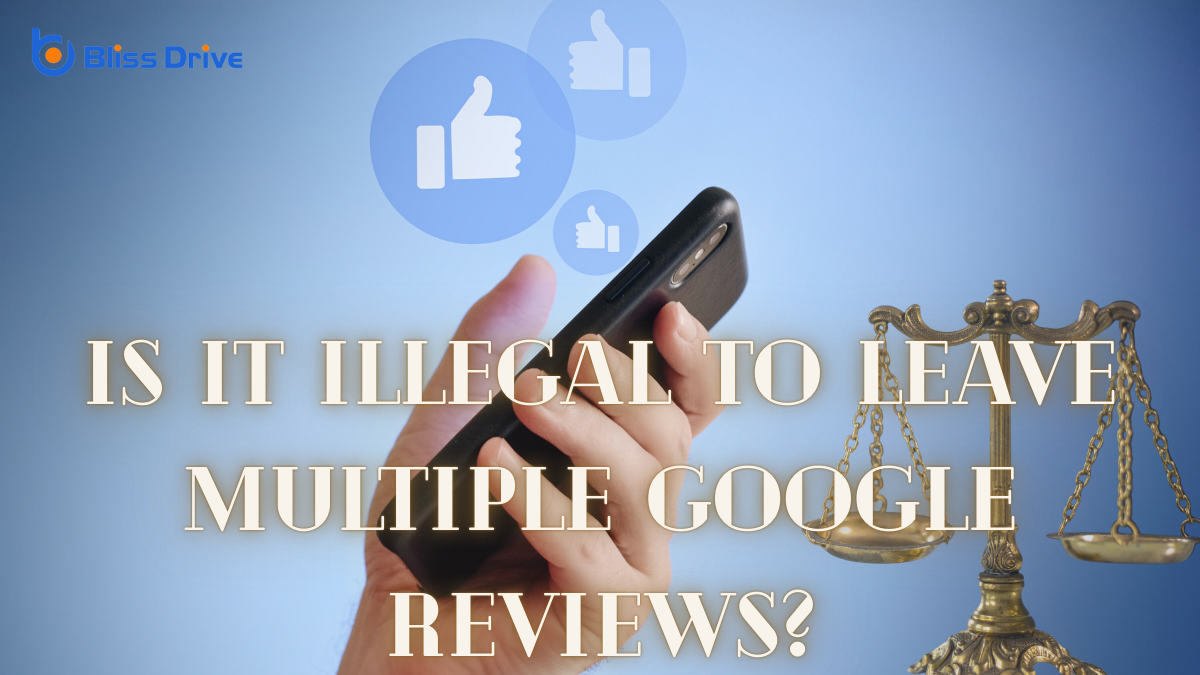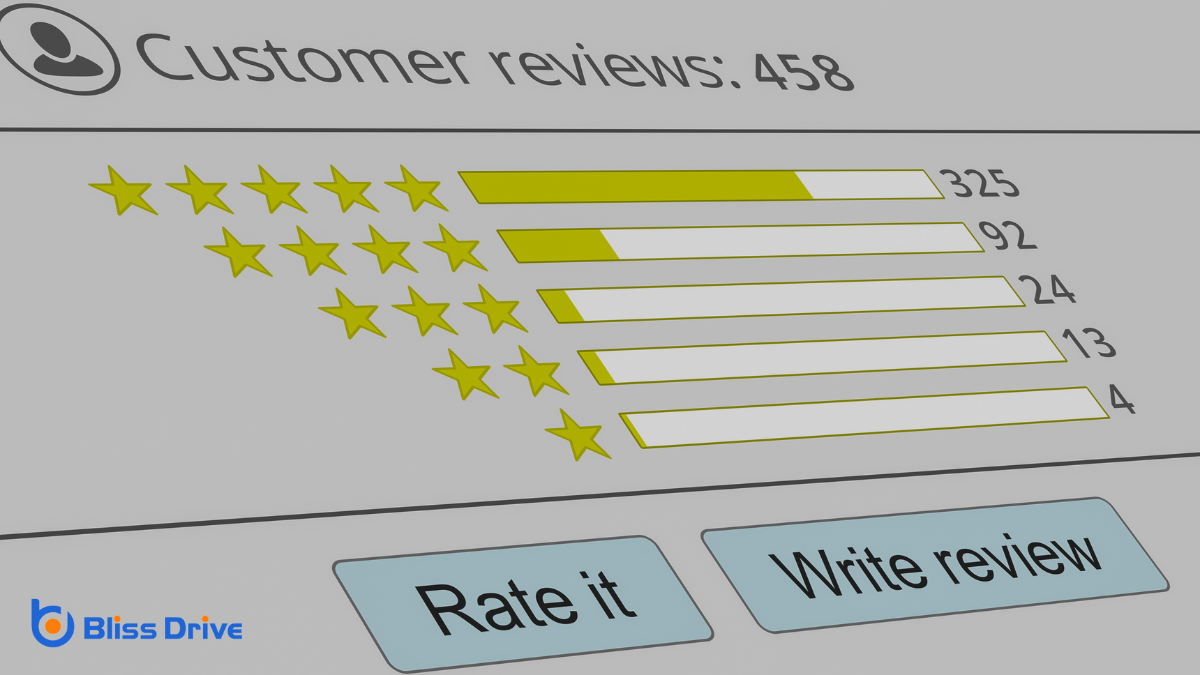Learn More About Us

I've often wondered about the legality of leaving multiple Google reviews for the same business. While it might not be outright illegal, it certainly breaches Google's review policies, which emphasize authenticity. Engaging in such behavior can leadA potential customer referred by an affiliate who has shown interest in the product or service but h... to the removal of reviews and potential penalties. But what are the broader implications, and could there be legal consequences? Let's explore the intricate layers of this issue.
When it comes to understanding Google review policies, it’s vital to know that Google aims to maintain a fair and trustworthy platform.
I've found that they've strict guidelines to guarantee reviews are honest and helpful. They prohibit fake engagement, including posting multiple reviews for the same location by a single user. This is to prevent manipulation and maintain integrity.
From my experience, Google values authenticity. They expect reviewers to be genuine and provide real experiences.
I understand that they may remove reviews violating these rules, making sure businesses and consumers can trust the feedback they see. It’s important to adhere to these guidelines to avoid penalties.

Although some might think leaving multiple reviews could amplify a business’s online presence, it often has the opposite effect.
Multiple reviews from the same person can come across as insincere and raise red flags for potential customers. Let me share the potential negative impacts:
Understanding these risks helps us appreciate the importance of genuine reviews, which truly reflect customer experiences and build authentic relationships.
When it comes to spotting manipulative review practices, I always start by looking for fake accounts.
These accounts often have unrealistic review patterns and odd frequencies that don't match normal user behavior.
Spotting fake accounts on platforms like Google Reviews is crucial for maintaining trust and authenticity in online feedback.
I know it can feel overwhelming to differentiate genuine reviews from manipulative ones, but there are clear signs to watch for:
Identifying manipulative review practices requires a closer look at how often reviews are posted. If you notice clusters of reviews appearing in a short time frame for the same business, it could indicate manipulation.
I’ve seen patterns where reviews flood in, suggesting artificial boosting. Such bursts mightn't reflect genuine customer experiences but rather a coordinated effort to skew ratings.
It’s essential to evaluate how often a reviewer posts. If someone leaves multiple reviews in a single day for different businesses, it might signal insincerity.
Genuine reviews typically stem from authentic experiences and are spread over time. By examining these patterns, we can better discern between honest feedback and deceptive practices.
Always approach reviews with a critical eye, seeking authenticity and truth.
When discussing online reviews, it’s crucial to understand the regulations that govern them.
I want to highlight how these rules, along with Google's review posting guidelines, help guarantee that reviews are trustworthy and honest.
Let's explore how these frameworks impact our ability to post multiple reviews legally.
Maneuvering the legal framework for online reviews can be a bit tricky, but understanding the regulations is essential if you're planning to share your opinions on platforms like Google.
Here's what you need to know:
Understanding these points helps you stay informed and protected when expressing your views online.
Maneuvering the legal landscape of online review posting involves more than just adhering to honesty and defamation laws.
To guarantee you’re on the right path, it’s essential to follow Google’s review posting guidelines. First, avoid posting multiple reviews for the same business from the same account, as this might be seen as an attempt to manipulate ratings.
Google’s policies also prohibit reviews that aren't based on a genuine experience. Misleading or incentivized reviews can lead to removal or account suspension.
It’s important to express your opinions truthfully without using offensive language or sharing personal information. Being transparent and fair in your reviews helps maintain trust and integrity on the platform, ensuring your voice is heard authentically.

As we navigate the world of online reviews, it’s essential to reflect on the ethical implications of our actions.
I often find myself wondering about the impact my words might have. Here’s what I consider to guarantee I act responsibly:
While it might seem harmless to bend the rules when leaving online reviews, the consequences of violating review guidelines can be quite serious. Companies like Google have strict policies to guarantee reviews remain fair and reliable. If you’re caught violating these guidelines, your reviews could be deleted, undermining any effort you put into shaping public opinion.
In some cases, repeated or severe violations could lead to your account being suspended or banned. Imagine losing access to all the Google services you rely on daily—it's a real possibility.
Additionally, posting fake or misleading reviews can harm businesses and consumers alike. I’ve seen how it erodes trust in online platforms.
It’s essential to maintain integrity and adhere to guidelines, guaranteeing a genuine and trustworthy review environment.
Understanding how companies like Google monitor reviews is vital, and IP tracking plays a significant role in this process.
When I think about it, IP tracking might sound intimidating, but it’s essential for maintaining fair and honest reviews. Here’s why:
Isn't it fascinating how tech protects integrity?

Though it might seem surprising, there are numerous instances where individuals and businesses have misused Google reviews for personal gain. A business owner might create fake accounts to post multiple positive reviews, boosting their reputation unfairly.
I've seen cases where competitors leave false negative reviews to damage a rival's reputation. This manipulation distorts the truth and can mislead potential customers.
In one case study, a restaurant owner paid people to flood their page with glowing feedback, resulting in temporary success but eventual backlash as genuine customers exposed the deceit.
Another instance involved a company using bots to automate positive reviews, which Google eventually detected, leading to penalties. These actions highlight the importance of authenticity and the risks involved in dishonest practices.
When I write reviews, I make certain to share my genuine experiences to help others make informed decisions.
It's important to stay honest and avoid reviewing businesses where I've a personal connection, as this could create a conflict of interest.
Let's focus on transparency to guarantee our reviews are both trustworthy and helpful.
Sharing genuine experiences in reviews isn't just about honesty; it’s about providing valuable insights to others considering the same product or service.
When I write a review, I aim to connect with readers on a personal level, hoping my story can help guide their decisions. Here’s why sharing authentically matters:
While writing reviews, it's vital to avoid conflicts of interest to maintain the integrity of your feedback.
I know it can be tempting to leave a glowing review for a friend's business or a company where I've personal ties, but it's important to stay objective. When personal relationships or financial interests are involved, they can skew my perspective, leading to biased reviews that don't reflect true experiences.
I also make sure not to accept incentives, like discounts or freebies, in exchange for a positive review. This guarantees my feedback remains honest and trustworthy.
Although receiving multiple reviews from the same person might seem overwhelming, businesses can effectively manage this situation with a strategic approach.
As someone who wants to understand how to handle this, consider these steps:
I've learned that while leaving multiple Google reviews isn't illegal, it goes against Google's policies and can lead to serious consequences. It harms trust and credibility, and businesses might suffer unjustly. It's essential to stick to honest, genuine feedback to uphold integrity in online communities. By following guidelines and being ethical, we can help maintain a fair and trustworthy review system. Let's commit to being responsible reviewers and contribute positively to the digital landscape.
